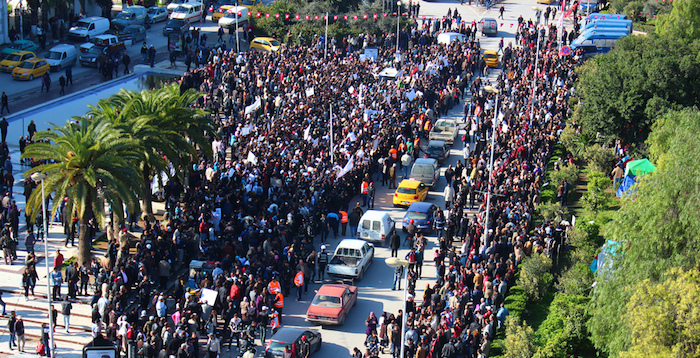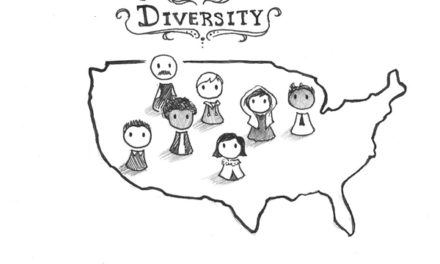Tunisia made international headlines in January 2011, when a young fruit seller, Mohamed Bouazizi, committed self-immolation, sparking the Arab Spring – a series of popular uprisings and revolutions, the effects of which are still being felt in the Arab world. Yet, since these early days of the Arab Spring, Tunisia has mostly fallen out of international headlines, as the events in its neighboring countries have overshadowed its relatively peaceful transition from the Zine El Abidine Ben Ali dictatorship. Syria remains in the throes of civil war, Egypt has returned to military dictatorship, and Libya is stuck in a chaotic power vacuum and civil war. Tunisia, meanwhile, is executing a relatively successful transition to democracy.
Yet this successful democratic transition risks being undermined by a range of causes, including domestic terrorists and economic and regional troubles spilling over into its borders. Upon this backdrop the United States has done little to support the nascent Tunisian democracy. America and its allies must make a greater effort to help Tunisian democracy flourish as a model of Arab democracy amidst the chaos and autocracy of its regional neighbors.
While the rest of the region burns in chaos or mires under autocratic governments, Tunisia is in the midst of a democratic transition. Quickly after the longtime dictator Ben Ali was ousted from power in January 2011, the first leader to lose power in the Arab Spring, Tunisia set about enacting democratic elections and drafting a new constitution. Ennahda, an Islamist party, won a plurality of the vote in the first election, with secular parties winning large shares as well. Rather than try to seize as much power for itself as possible, Ennahda formed a coalition government with other
secular parties because it wanted to establish a broad consensus in the establishment of its
democracy.
Ennahda’s policies have been in stark contrast to those of the Muslim Brotherhood in Egypt, also an Islamist party, who after securing a parliamentary majority following the overthrow of the Hosni Mubarak dictatorship, unilaterally instituted a heavily Islamist constitution. The Brotherhood was thrown out of leadership in a military coup within a year of taking power, and has subsequently been heavily persecuted by the new military-led regime.
Rachid Ghannouchi, the leader of Ennahda, said in a Washington Post op-ed: “Sacrificing party interest in this way was a small price to pay for national unity. A 51 percent vote may be enough to give a new government legitimacy in established democracies such as the United States. But in a place like Tunisia, where the foundations for democratic rules are still being constructed through a delicate process of consensus-building, acting with such a narrow majority risks polarizing the people.” Ennahda has learned from the Brotherhood’s mistakes, and will not repeat them.
Ennahda made sure to get a broad consensus while drafting the constitution. Minority parties’ opinions were taken into account, resulting in a remarkable 94 percent of the national legislature approving the new constitution in January. Additionally, 41 out of 89 members of the national legislature are women, which helps ensure adequate protection of women’s rights. Many outside groups were also involved in drafting the constitution, including the military, unions and business associations.
Most recently in the Tunisian democratic transition, presidential elections were held in
October. No candidate won an outright majority, so there will be a runoff election later this month between the two leading candidates, Beji Caid Essebsi, of the secularist Nidaa Tounes party, and Moncef Marzouki, a leftist dissident who attracts much of the religious vote. Ennahda decided not to run or endorse a candidate in the election to preserve the unity government in place.
All of these promising democratic developments risk being undermined by a variety
of factors. Libya, Tunisia’s neighbor to the east, is in the midst of a chaotic civil war with many competing factions and no end in sight. Tunisian politicians are worried that violence, terrorism and chaos could spill over onto Tunisian soil. There are also many refugees flowing into Tunisia from Libya, costing the Tunisian state already scarce resources to deal with them. These struggles are undermining business confidence in the North African region, decreasing foreign investment that could help the Tunisian economy.
An increase in foreign investment would be particularly helpful, as the Tunisian unemployment rate is disconcertingly high, at 15 percent. Unemployment is even higher for youths. High unemployment was a large factor in the fall of the Ben Ali dictatorship, so there is fear that it could likewise undermine the new transitional democratic regime.
Like much of the Arab world, Tunisia struggles with a domestic Islamist insurgency. A small Islamist insurgency is being waged in the western mountains of the country, near Algeria. Also, approximately 3,000 Tunisians are fighting for the Islamic State, who many fear will be a future threat to peace and the growth of democracy in Tunisia.
While all of these threats are serious, none seem as if they will cause a backslide away from democracy in the near future. Tunisia holds great promise for democracy to flourish, serving as a potential role model for the rest of the region.
Therefore, the United States and its Western allies should do more to promote Tunisian democracy. At the moment, the United States has only committed $350 million since the 2011 revolution to support Tunisia’s democratic transition – a fraction of the billions in aid that the United States gives each year to support Israel, which has caused widespread international outcry for its excessive use of force during the Gaza campaign this summer, and the repressive
military regime of Egypt.
The Obama administration has moreover under-acknowledged Tunisia in its Middle East policies. Tunisia is proving to be a political model for the Arab world, and the Obama administration should embrace Tunisia, increasing aid and holding it as an example rhetorically, so that its neighbors may follow its example.
Ben Perlmutter is a College junior from Chappaqua, New York.
The Emory Wheel was founded in 1919 and is currently the only independent, student-run newspaper of Emory University. The Wheel publishes weekly on Wednesdays during the academic year, except during University holidays and scheduled publication intermissions.
The Wheel is financially and editorially independent from the University. All of its content is generated by the Wheel’s more than 100 student staff members and contributing writers, and its printing costs are covered by profits from self-generated advertising sales.






